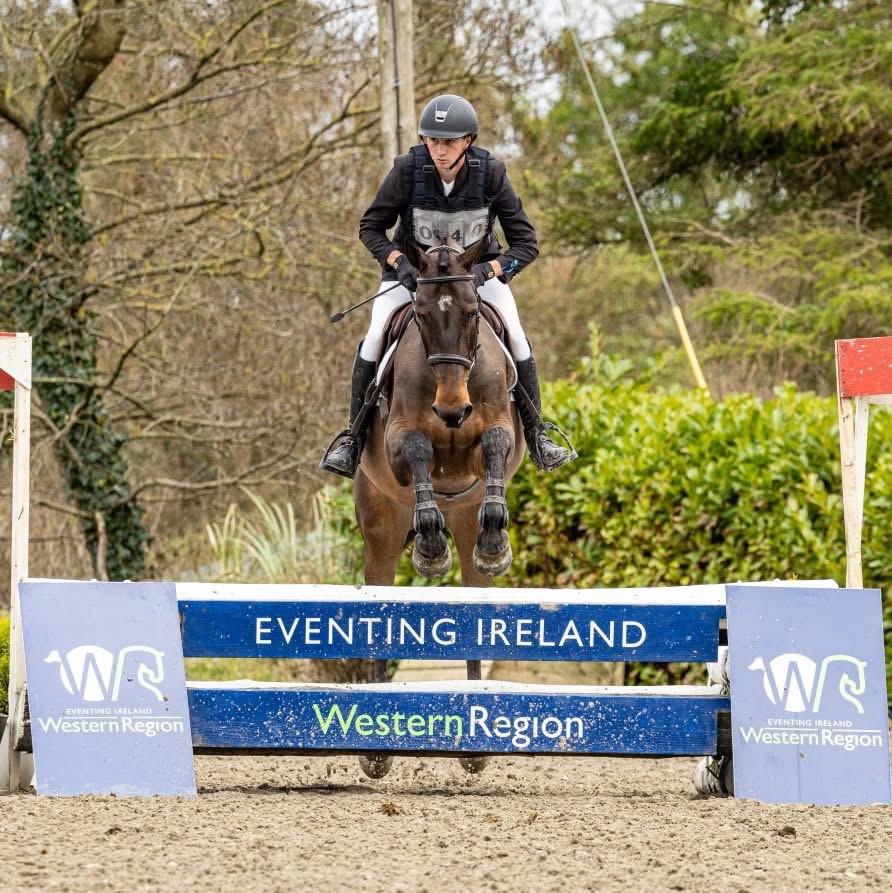
Photo via EN archives.
In this edition of Horse Health News, we’re looking ahead to new seasons: the 2020 British Eventing season, the next racing season at Santa Anita Park, and the start of indoor arena dust-breathing season. As the seasons change and winter settles in, now is a great time to familiarize yourself with new developments.
This Week in Horse Health News …
Owners of competition horses in the U.K. will need to abide by the same equine influenza vaccine requirements put in place earlier this year. After a spring season full of equine flu outbreaks across England, the British Equine Veterinary Association (BEVA) put temporary changes to the equine influenza vaccination requirements in place earlier this year with the intention of creating a permanent rule before the end of 2019. Consultation about the rule will now take place in 2020 and horse owners should abide by the existing requirements until further notice. [BEVA]
The formation of a new Thoroughbred Safety Coalition was announced earlier this week. The coalition is a collaborative effort among major tracks and racing groups to bring improvements to the safety of both horses and humans involved in Thoroughbred racing. Members include Churchill Downs Inc., the New York Racing Association, The Stronach Group (which owns Santa Anita Park), Del Mar, Keeneland, and Breeders’ Cup — other like-minded industry groups are welcome to join. The goals of the group will be multifaceted and includes “plans to create and implement significant medication, operational, and integrity guidelines to ensure and improve the well-being of horses and riders.”
Current members of the coalition account for all three Triple Crown races, about 85% of the graded stakes in the country, and 14 racetracks across the country. Ideally, this coalition would be the start of a movement that is able to make safety changes to the sport of Thoroughbred racing as a whole, rather than on a track-by-track basis. All racetracks would need to eventually join the coalition in order for any standards to be adopted uniformly. [BloodHorse] [Paulick Report]
Funding to install equine MRI and PET scanners at Santa Anita Park have been secured. Both machines, which will be able to be used in standing horses under sedation, are valuable veterinary diagnostic tools useful for imaging the lower leg. The MRI will be installed in time time for use during the upcoming season with starts are the end of December. The PET scanner will require another clinical trial at the University of California Davis before it’s moved to the track also in December. PET imaging is particularly interesting because it can detect changes in the limb at the molecular level before any structural changes occur. Once the scanner is installed at the track, researchers plan to image as many racehorses as possible and develop a PET image database that could help identify horses at risk of breakdown. [BloodHorse]
Remember that survey about the health concerns of indoor arenas that we mentioned a little while ago? The initial results are in! To refresh your memory: a researcher from the University of Kentucky College of Agriculture, in conjunction with the UK College of Public Health, decided to do her own research on the air quality of indoor arenas when she realized there wasn’t any already available. According to the findings, “77% of respondents are concerned about dust, moisture levels, and/or the lack of air movement.” The next parts of the study will focus more of those result, but the initials results provide insights into trends in area age, construction costs, design, and lighting. [The Horse]
As horse owners and competitors, we want to give our equine athletes every opportunity to feel and perform their best. Keeping up to date with the latest news in horse health and medicine is an important part of that, and it’s why Medivet Equine is bringing you the latest in horse health news each week.
Following the medical model of “do no harm”, MediVet Equine develops scientifically based therapeutics enabling the horse to call on its own healing ability, thus achieving its full performance potential. MediVet Equine provides effective, all natural, drug free products and lab services designed to optimize the overall health of performance horses. They specialize in regenerative treatments that help the body heal itself to get stronger naturally. Boyd Martin has several of his top competitive mounts on MediVet ACS, and has had terrific results!



















